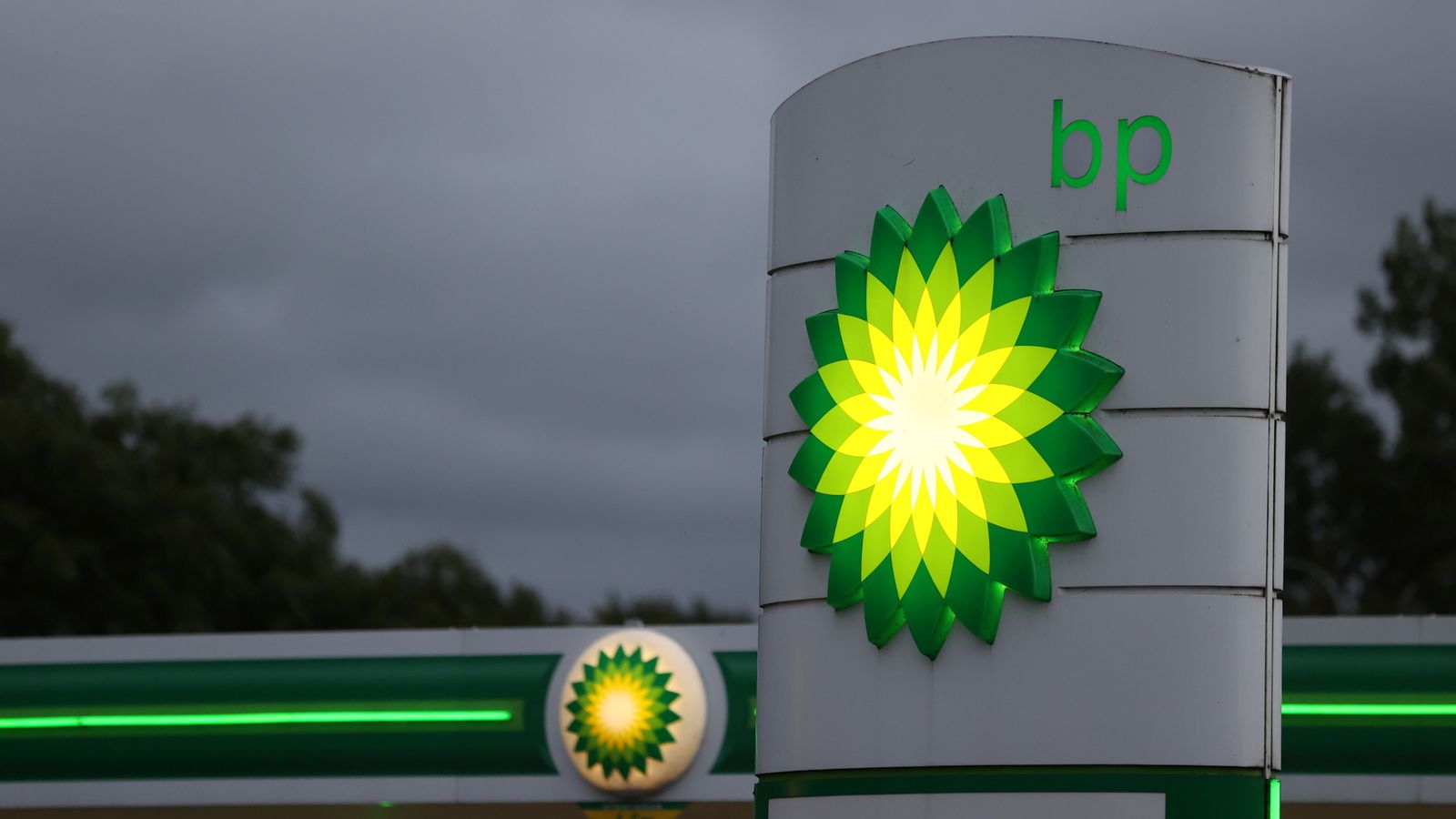BP has reported a second-quarter profit of $8.45bn (£6.9bn) – its highest in 14 years – at a time when consumer fuel prices have been at record highs.
BP’s underlying replacement cost profit, the company’s definition of net earnings, was the strongest since 2008 and far exceeded analysts’ expectations of $6.8bn.
That compares with a $6.25bn profit in the first three months of 2022 and $2.8bn a year earlier.
BP chief executive Bernard Looney said: “Today’s results show that BP continues to perform while transforming.
“Our people have continued to work hard throughout the quarter helping to solve the energy trilemma – secure, affordable and lower carbon energy.
“We do this by providing the oil and gas the world needs today – while at the same time, investing to accelerate the energy transition.”
The oil and gas giant increased its dividend by 10% to 6.006 cents per share – more than its previous guidance of a 4% annual increase.
House prices continue to rise – up for the 12th month in a row
British Airways stops selling new tickets for short-haul flights from Heathrow
Morrisons launches line of ‘carbon neutral eggs’ from hens fed on insects reared on company’s own food waste
But it comes as UK households face a rapidly-worsening cost of living crisis, with rising energy prices being a major factor.
It also comes days after record profits were reported by rival Shell, as well as the two largest US oil companies – Exxon Mobil and Chevron.
The record cash flowing into energy companies has reignited calls for a tougher windfall tax on additional profits on oil and gas, the prices of which have soared as Russia invaded Ukraine and threatened to cut off gas supplies to Europe.
Rachel Reeves MP, Labour’s Shadow Chancellor, said: “People are worried sick about energy prices rising again in the autumn, but yet again we see eye-watering profits for oil and gas producers.
“Labour argued for months for a windfall tax on these companies to help bring bills down, but when the Tories finally u-turned they decided to hand billions of pounds back to producers in tax breaks. That is totally wrong.
“It’s clear people need greater protection from rising bills. That’s why Labour would use this money now to help people get through the winter.
“But we can’t carry on like this. Labour would bring down energy bills for good with a green energy sprint for home-grown power, and a 10-year warm homes plan to cut bills for 19 million cold, draughty homes.”
BP’s half-year figures were affected by a massive $24.4bn (£19.9bn) hit from its move to ditch the firm’s near-20% stake in Russian oil producer Rosneft in response to the Ukraine war, leaving it with bottom line replacement cost losses of $15.4bn (£13bn).






















